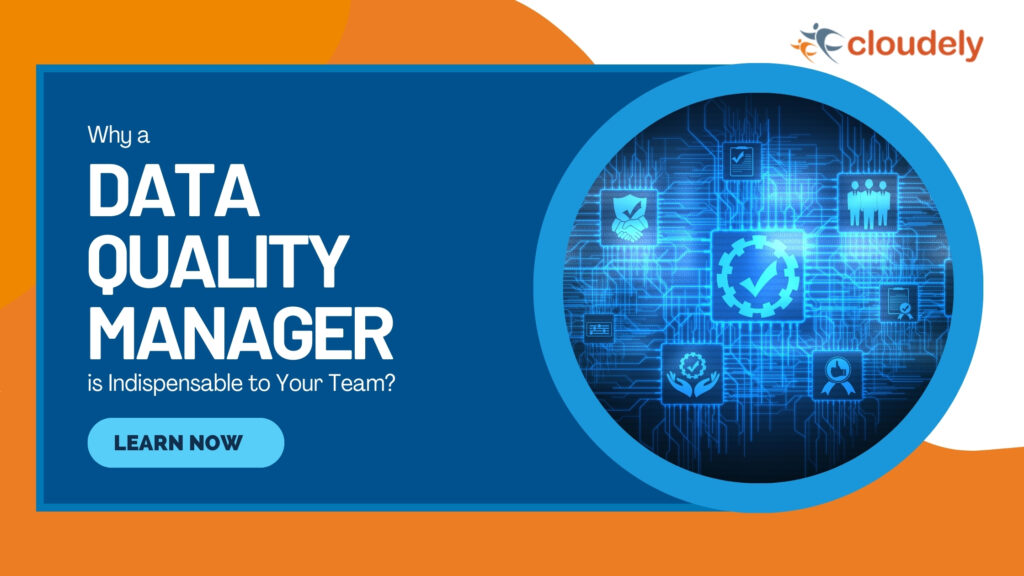Have you ever thought about how much your business heavily relies on the quality data it collects and uses? Customer data fuels business growth strategies through analytics, and as such, if the data quality is bad, the businesses will be in big trouble. While the importance of data is widely recognized, the role of data quality management sometimes needs to be noticed. Therefore, your expert technical must comprise a data quality manager. Let’s see the key responsibilities of this role and how they directly support your bottom line.
Assessing Your Data’s Health
When data isn’t standardized, accurate or up-to-date, it often leads teams to make flawed decisions or miss important insights. This is where a data quality manager shines – they assess your data repositories to identify issues, measure how “clean” the data is and recommend solutions.
Some of the important tasks a data quality manager performs include:
- Auditing datasets to check for accuracy, completeness, consistency and conformity to accepted quality standards.
- Documenting metadata to provide context and definitions for data elements.
- Establishing quality metrics and Key Performance Indicators to benchmark data health over time.
- Conducting error testing and validation on incoming and outbound data.
- Identifying data quality risks and weaknesses to prioritize improvement projects.
Improving Business Processes
They work closely with subject matter experts and process owners to enhance workflows, implement quality checks and drive accountability for data. Some process improvements they may champion include:
- Integrating data quality steps into existing processes like customer onboarding or product ordering.
- Developing validation rules and business rules to enforce data standards.
- Implementing data governance policies and guidelines for maintaining data health.
- Training employees on collecting, inputting, and managing high-quality information.
- Automating data standardization, cleansing and enrichment tasks through tools and scripts.
- Coordinating data fixes and updates across internal systems.
Enabling Effective Analytics
With clean, well-organized data as the foundation, data quality managers then focus on empowering insightful analytics. They work closely with analytics teams to understand their needs and ensure data meets technical requirements. For example, they may:
- Build data models and data pipelines to integrate diverse sources for analysis.
- Match data schemas to analytics tools for simplified reporting and dashboarding.
- Enrich datasets with relevant attributes and descriptors.
- Profile data to expose relationships, trends and patterns hiding in plain sight.
- Resolve semantic inconsistencies that confuse machine learning algorithms.
- Generate synthetic datasets to improve model testing and development.
Informing Tactical & Strategic Decisions
The biggest payoff of a data quality program comes when clean, governed data shapes operations and planning. Data quality managers actively participate in the following:
- Advising product teams on market needs revealed by customer data.
- Partnering with finance to model returns based on historical sales data.
- Guiding marketing attribution by surfacing new customer segments.
- Informing HR decisions like benefits using employee satisfaction surveys.
- Supporting legal and compliance based on regulated customer attributes.
On a higher level, their expertise helps set strategic data priorities. They work with executives to develop:
- Data monetization strategies based on enriched customer profiles.
- Data sharing recommendations between business units.
- Competitive intelligence plans to leverage public and third-party sources.
- Data management modernization roadmaps factoring quality, analytics and governance needs.
Managing Data as a Valuable Asset
When framed as the guardian of a core business asset, the importance of a data quality manager really comes to light.
Some responsibilities in this expanded role include:
- Quantifying the financial and strategic value of high-quality data.
- Defining data domains, owners and appropriate access levels.
- Maintaining data inventories, definitions and lineage documentation.
- Enforcing privacy, security and retention standards for regulated data.
- Protecting data integrity with change management and incident response.
- Optimizing data storage, architecture and infrastructure investments.
Cultivating a Data-Driven Culture
A true marker of success for any data quality program is organizational change. They promote awareness that high-quality data benefits all and is everyone’s responsibility. Some cultural development tactics may include:
- Promoting data literacy and skills training across departments.
- Publishing data quality metrics and success stories to recognize best practices.
- Involving business and department leaders to set the right “tone from the top”.
- Developing informal data quality champions and communities of practice.
- Automating feedback loops to make quality visible in daily work.
- Integrating data quality considerations into performance objectives.
Let Cloudely Care for Your Data Quality
At Cloudely, we understand why data quality is vital for business decision making. Our Salesforce experts help companies with data quality management to ensure the fullest returns from their data. To learn more how we can assist you in your data quality management, email us at salesforce@cloudely.com.
